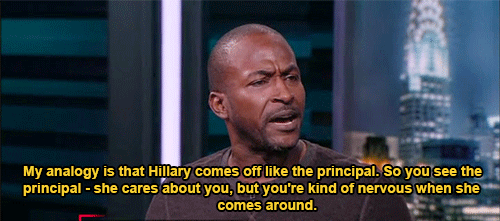Text
Brief Thoughts on the Effectiveness of America Democracy
When, in the life of a democratic society, it becomes apparent that the intellectual abilities of the electorate have exceeded the bounds of established political institutions, one is forced to question the wisdom of maintaining those institutions in their traditional form. When it becomes apparent that those institutions have failed in achieving their intended purposes, and furthermore that they have succeeded in degrading and undermining the very ideological foundations of the democracy which they serve, it it advisable, and entirely necessary to abolish those failing institutions, and replace them with some system more suitable. No institution in modern history represents more fully these shortcomings than the American Electoral College. Created as a compromise between the framers of our constitution, the Electoral College was intended to check the power of the electorate with congressional oversight. The underlying assumption for this system being that the masses need be secured insured against self imposed tyranny. This assumption is, to say the least, flawed, and irreconcilable with John Lockes social contract theory of government; the very idea used by revolutionary patriots to justify their treason against the British crown. According to Locke, "no one can be put out of this estate, and subjected to the political power of another, without his own consent" (Locke, Second Treatise of Government, § 95). The power vested in any government, is thus granted exclusively by those whom that government protect and serve. The validity of this assumption is of no consequence. Valid or not is upon this foundation that our nation was born, therefore without it our nation ceases to exist in its intended form. With this in mind, it should be asked whether or not a system in which election results are decided not by the popular will of the electorate, but by the distribution of votes, may be considered a true demonstration of submission and a willingness to be governed. One must ask also, how a constancy may grant power to its government if that government assumes that the desires of that constituency are something which need be defended against. This argument innately assumes that the will of the citizenry is not, in fact, of ultimate and deciding relevance. Since it's the adoption of the constitution in 1789, five presidents have take office without having been elected by the majority of American voters (excluding Vice Presidents taking office at the death of the president). John Quincy Adams took office as a result of a vote in the House of Representatives (thus not as a result of the failure of the Electoral College). The other four, which included the election of Rutherford B. Hayes (1876), Benjamin Harrison (1888), George W. Bush (2000), and Donald Trump (2016), came as quirks of the electoral college system. This equates to eight percent of all presidential elections. This is, of course, not a disturbingly common occurrence, but why would we continue propagating a system which fails at all when that system could be easily replaced. This problem would be easily remedied by replacing the electoral college with a system of direct election. There is, to my knowledge, no justification no considerable downside to making this transition. Direct election would protect the ability of the American citizenry to consent to governance. A protection not only desirable, but also wholly essential for the continuation of American democracy.
0 notes
Photo

Carrie Fisher & Debbie Reynolds Meet US President Richard Nixon - Early 1970’s
via reddit
252K notes
·
View notes
Text
2016
Let me not see our country’s honour fade:
O let me see our land retain her soul,
Her pride, her freedom; and not freedom’s shade.
-John Keats
War horns blast out across the nation
a gurgling song
bursting the ear drums of men and women
trudging through blood and sweat and shit in their huts and houses and shanty cities of brick, mortar, wood and cardboard.
Two arise opposed from one another, spewing hate and rage across the chasm of bodies and rubble between. Charging one another, grappling, and stomping on the lives of those beneath, they tell those on whom they trod that they mean only to help. Progress is a messy business.
We watch in horror as all we’ve built is crushed and the world returns to a state of fallow three field systems and feudalism.
Democracy dies, and the many cast down their eyes as the tyrants rise once more to reclaim what they’ve lost.
0 notes
Link
☝🏻️all of the reasons you should vote for literally anyone other than Donald Trump tomorrow.
2 notes
·
View notes
Text
Skip, hop, plop
Rocks skip, hop, and stop With a gentle yet begrudging plop, Sinking beneath merry ripples Of water pale and green. Rings expand from points of impact, Turning symmetrical waves To a collection of chaotic hills and valleys Rising without rhythm or rhyme. A second stone spins from my hand, Flying low and fast, With another skip and hop, And stopping plop. Again and again I search for stones Flat and round and smooth. My arm arches back, Spinning the stones To their skips, hops, and plops. I search for symmetry; uniformity, Hoping for a pattern among the pushing and pulling ripples, And end with a pool less sensible Than when I found it. Skip, hop, and plop
1 note
·
View note
Text
Dirt
She bends low; toiling amongst sods and slop. Sweet sweat soaks deep, and drenches her smock. The clay clods and clumps round her feet, as she tills and turns the turf, perfecting her plot with spade and sheer. Years pass as she pulls pricked goat-heads and cleaves the careless weeds that choke her cherished beds of lily and rose. Her back once straight begins to bow, but on and on her charges grow green and gay. She toils till dusk, the long day now spent, then slips silent, and still, into slumber a slumber so deep.
0 notes
Photo
Очень красивый город!



St. Petersburg, Russia (Санкт-Петербург)
26K notes
·
View notes
Photo

Robert Williams Wood, Max Planck and Albert Einstein in the front row of a session of the Physical Society in Berlin on July 28, 1931.
via reddit
256 notes
·
View notes
Quote
Oh me! Oh life! of the questions of these recurring, Of the endless trains of the faithless, of cities fill’d with the foolish, Of myself forever reproaching myself, (for who more foolish than I, and who more faithless?) Of eyes that vainly crave the light, of the objects mean, of the struggle ever renew��d, Of the poor results of all, of the plodding and sordid crowds I see around me, Of the empty and useless years of the rest, with the rest me intertwined, The question, O me! so sad, recurring—What good amid these, O me, O life? Answer. That you are here—that life exists and identity, That the powerful play goes on, and you may contribute a verse.
Walt "Uncle Walt" Whitman
2 notes
·
View notes
Photo
My blog has become a compilation of Parks n Rec memes.

240K notes
·
View notes
Text
Bernie Sanders is literally the only candidate that stands out from the rest; he's our chance to really shake up national politics, but unfortunately his biggest demographic is the one that historically votes the least. Be a patriot, and register to vote regardless of who you support.
0 notes
Conversation
Me: don't lick ur butt in front of guests
Cat: how many times must you kinkshame me in my own house
213K notes
·
View notes







